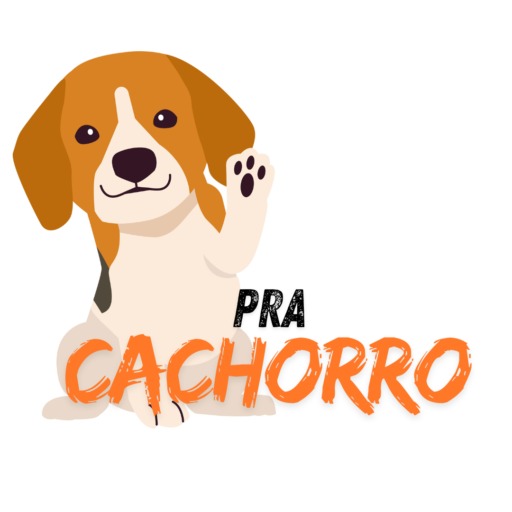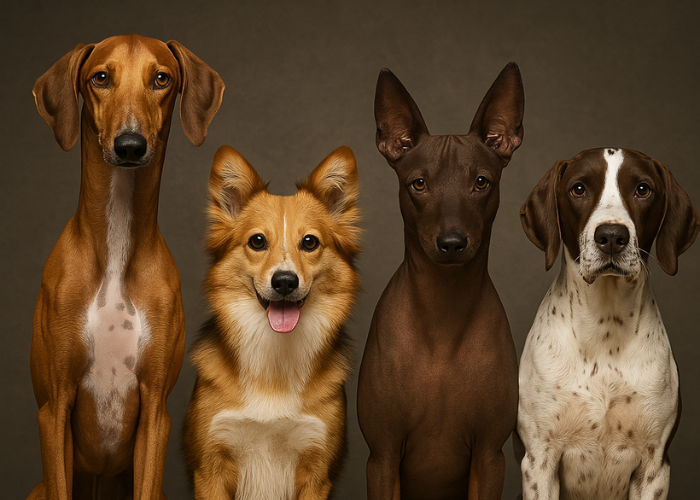Dogs have unique and intriguing behaviors that often leave us wondering about their motivations. One of the most common is their habit of licking their owners. But what does this gesture mean? Is it simply a display of affection, or is there something more behind it?
In this article, we will explore the reasons why dogs lick their owners, from emotional and behavioral aspects to instinctive and physiological factors. Discover how to interpret this behavior and when it may signal something that requires attention.
1. Licking Is a Form of Communication
For dogs, licking is a way to communicate. From a young age, they learn that licking can convey important messages:
Instinct Inherited from Wolves
Wolf pups lick the faces of adult wolves to request regurgitated food, a behavior also observed in dogs. Although domestic dogs do not need to ask for food in this way, the instinct remains and can be used to get attention or show submission.
Display of Submission
When a dog licks its owner, it may be showing respect and submission. This behavior is especially common in dogs that see their owners as the “pack” leader.
Seeking Attention
Licking can also be a way to get attention. If the dog notices that you react positively to this gesture, it may use licking as a way to interact with you.
2. It’s a Sign of Affection
Many times, licking is simply an expression of love. Dogs are social animals and may use licking to express their bond with their owners.
The “Feel-Good” Hormone
Studies show that interaction between dogs and humans can increase oxytocin levels, known as the “love hormone.” When a dog licks its owner, both may experience a sense of well-being.
Positive Reinforcement
If you respond to licking with affection or attention, your dog may associate licking with a positive outcome and continue doing it as a form of interaction.
3. Curiosity and Exploration
Dogs explore the world through their sense of smell and taste. Licking can be a way of “investigating” you.
Scents and Flavors
Dogs are drawn to unique odors, such as sweat or food residues on your skin. Licking can be a way to explore these scents and tastes.
Recognition
By licking, dogs gather information about you, such as your emotional state and health. Their highly sensitive olfactory glands allow them to detect subtle details through taste.
4. Licking as a Stress or Anxiety Reliever
Licking can be a self-soothing behavior for dogs that are stressed or anxious.
Repetitive Behavior
Some dogs lick excessively when nervous as a way to relieve tension. This may include licking their owners, themselves, or objects.
Seeking Comfort
By licking their owners, dogs may be seeking security and comfort in moments of uncertainty.
Endorphin Release
Licking releases endorphins in dogs, which can help them relax and feel comforted, similar to how humans find repetitive actions soothing.
5. Could Licking Indicate a Medical or Behavioral Problem?
While licking is usually harmless, in some cases, it may indicate a problem that requires attention.
Compulsive Behavior
If a dog licks obsessively, it may be a sign of compulsive behavior, anxiety, or boredom.
Health Issues
In rare cases, excessive licking can be a symptom of medical problems, such as allergies, pain, or gastrointestinal discomfort.
Skin Irritations
Sometimes, dogs lick areas where they experience discomfort due to infections, injuries, or parasites. If your dog is focusing on licking a particular spot, a veterinary check-up is advisable.
How to Manage Excessive Licking
If your dog’s licking habit is excessive or bothersome, here are some tips to manage the behavior:
Redirect the Behavior
Offer a toy or treat when the dog starts licking excessively. This can help shift their focus.
Set Boundaries
If you do not want your dog to lick you, be consistent in saying “no” gently but firmly and ignore the behavior.
Observe the Context
Pay attention to the circumstances in which your dog licks. Are they anxious, bored, or seeking attention? Identifying the reason helps address the root cause.
Provide Mental Stimulation
If boredom is the cause, ensure your dog has enough physical exercise and mental engagement, such as puzzle toys, training sessions, or interactive games.
Consult a Veterinarian or Animal Behaviorist
If the behavior is compulsive or accompanied by other symptoms, consulting a professional is essential.
Conclusion
Licking is a multifaceted behavior that can mean many different things, from affection and submission to exploration and stress relief. Understanding the reasons behind this gesture helps strengthen your bond with your dog and ensure their emotional and physical well-being.
If licking becomes excessive or bothersome, simple redirection strategies and positive reinforcement can help manage the situation. Remember that, at its core, this behavior reflects the incredible connection that dogs have with their owners.
Frequently Asked Questions
1. Why does my dog lick my face?
Licking the face can be a sign of affection, submission, or curiosity. It can also be a way to seek attention.
2. Is it normal for my dog to lick my hands after eating?
Yes, dogs may lick your hands to explore scents or tastes associated with food.
3. How can I stop my dog from licking excessively?
Set clear boundaries and redirect the behavior by offering toys or treats.
4. Is licking always a sign of affection?
Not always. Licking can also indicate stress, anxiety, or even medical problems.
5. Should I be concerned if my dog licks obsessively?
Yes, if the behavior is compulsive or accompanied by other symptoms, consulting a veterinarian or behaviorist is recommended.



